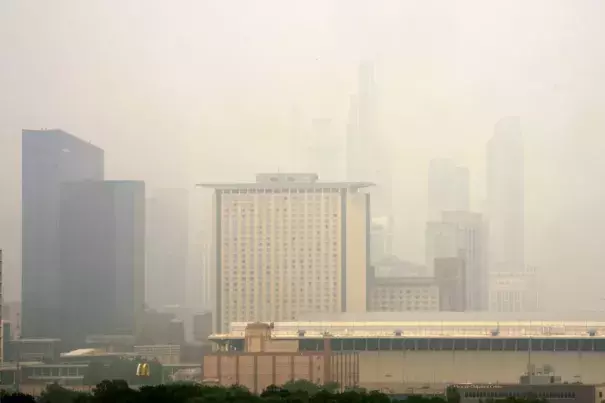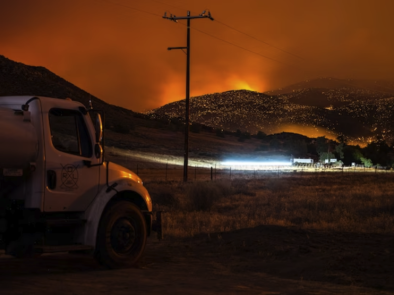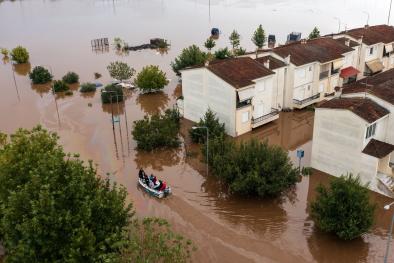Wildfire Smoke Worsens Existing Inequities

The toxic wildfire smoke blanketing large swaths of the Midwest and eastern U.S. is exacerbating extant air pollution risks, especially for historically excluded communities. Racist policy decisions have resulted in polluting industries and highways to be located in or near color and low-income communities. Communities in Detroit, which is predominantly Black with a 30% poverty rate, saw some of the most polluted air in the U.S. on Wednesday. “The more breaths you’re taking, you’re inhaling, literally, a fire, camp smoke, into your lungs,” resident Darren Riley, who was diagnosed with asthma in 2018 a few years after moving to the city, told the AP. “Many communities face this way too often … And while this wildfire smoke allows, unfortunately, many people to feel this burden, this is a burden that far too long communities have faced day in and day out.” Smoke from the wildfires has reached as far as the Iberian Peninsula and is not expected to fully abate until the end of the summer. The fires have burned an area of Canada's boreal forests the size of South Carolina and have already broken the annual record for Canadian wildfire carbon emissions since records began in 2003.
(Smoke impacts: AP; Detroit air quality: The Hill; Fires: Axios; Climate connection: New York Times $; Carbon emissions: Reuters)
(Climate Signals background: Wildfires)
To receive climate stories like this in your inbox daily click here to sign up for the Hot News Newsletter from Climate Nexus:
Related Content






